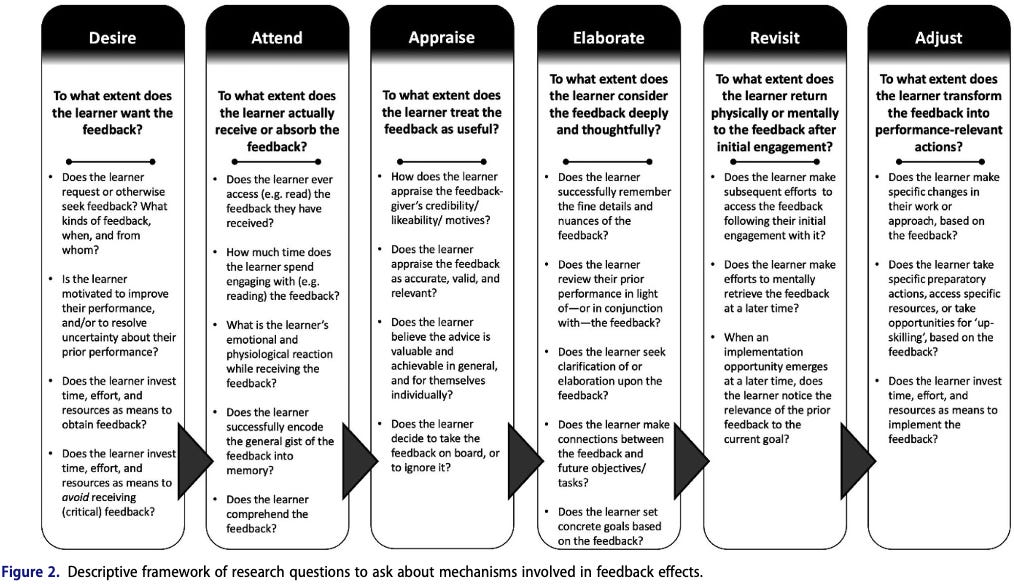How exactly does effective feedback work?
Winstone and Nash have proposed a psychological science of effective feedback.
I’m big on feedback. I want to stay sharp and get better, which means, among other things, receiving and productively using feedback. There have been many, many studies about how people feel about feedback, and whether it affects their performance. But we don’t know much about how or why effective feedback works. Naomi Winstone and Robert Nash want to change that.
They’ve written a wonderful article titled “Toward a Cohesive Psychological Science of Effective Feedback” and if you care about helping people get better, you need to read it. It’s the introduction to a special issue of Educational Psychologist on “Psychological Perspectives on the Effects and Effectiveness of Assessment Feedback”. There are a bunch of great articles in that issue, but I’ll focus on Naomi and Rob’s, today.
They did a thorough review of the feedback literature with an eye toward what authors said were the necessary questions and next steps for feedback research. From that, they created a descriptive framework of the six phases of learners’ engagement with feedback and the various questions researchers should be asking about each phase, and why feedback happens the way it does.

Basically, if you study feedback or want to do so, it’s a huge list of great research ideas. And Naomi and Rob unpack each phase, explaining how they derived it. They end with a description of each of the other articles in the special issue, which go into ideas from one or more of the phases.
My feedback for Naomi and Rob? Really tremendous work! Kudos to them - guest editing a special issue of Educational Psychologist is no small task, and they did a fabulous job. If you want to better understand how to provide effective feedback, and why it works, check their article out!